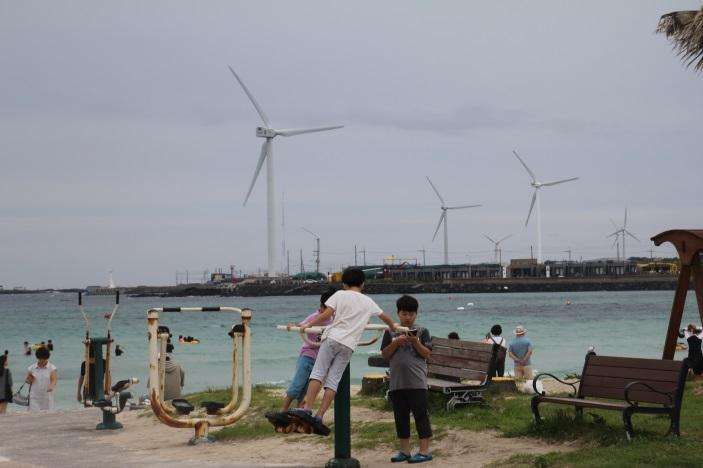Korea targets emission reductions
On Tuesday, the Korean government announced mid and long-term action plans to reduce greenhouse gas emissions in the country.

On Tuesday, the Korean government announced mid and long-term action plans to reduce greenhouse gas emissions in the country.
The pan-governmental comprehensive framework, approved by the cabinet, is intending to achieve the country’s goal of cutting carbon emissions by 37 per cent, or 315 million metric tonnes, as set out by the Paris Agreement.
In the new plan, the government seeks to boost incentives for renewable energy and cleaner power projects, in the hope of raising the share of renewables to 7 per cent by 2020.
They also plan to introduce a cap-and-trade system to expedite industry innovation and environmentally friendly investment, while helping to integrate in to the future global carbon market.
The plans also pledge to expand funding in the development of climate technologies such as solar and fuel cells and conversion of waste gas, as well as doubling investment in clean energy research to 1.12 trillion won ($957 million) by 2020.
According to the International Energy Agency, Korea is the world’s seventh-largest polluter, with its carbon output reaching 572 million metric tonnes in 2013.
Under the plan, the government aims to slash 219 million metric tonnes, or nearly 70 per cent of the total reduction goal, from eight different areas including power production, industry and buildings.
The largest reductions would come from electricity generation with 64.5 million metric tonnes, followed by industry with 56.4 million metric tonnes, buildings with 35.8 million metric tonnes and new energy sectors including electric vehicles and energy storage with 282 million metric tonnes.
Seoul also looks to curb 96 million metric tonnes through international market mechanisms, focusing on carbon credit trading and funding sources.
Upon the release of the plans, the government said: “The action plans were formulated in a way that helps to shift the reduction-focused responses to climate change to a fresh paradigm centering on the market and technology ... and strengthen the private sector’s role and promote the acceptability of the policy.”
The government ended the report by leaving room for future revisions, saying plans would be adjusted according to changing economic condition.


